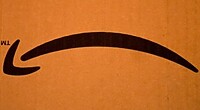
It is shockingly easy to enter a book into the Pulitzer Prizes in Letters competition. The author (in most categories) must be an American citizen, the book must be available for sale in print, it must have first been published that year, and the person submitting the book has to send four copies of the book and a fifty dollar entry fee. That’s it.
It’s easier and cheaper to submit a book to the Pulitzer jury than it is to get a driver’s license. So why aren’t more indie authors doing it?
It may possibly be the mindset that the Pulitzer, whose journalism award is equally prestigious and possibly more well-known due to its significance in reporting, is for the elite authors only. But by the entry rules’ own guidelines, there is no requirement–unlike some other well-known and allegedly prestigious awards–that the book be traditionally published, nor that the publisher submit the book for entry. The author herself can enter her work.
Incidentally, the Pulitzers have been awarded for 2013, with Donna Tartt’s The Goldfinch taking the prize for fiction. Other category winners include Margaret Fuller: A New American Life by Megan Marshall (biography), Toms River: A Story of Science and Salvation by Dan Fagin (non-fiction), and 3 Sections by Vijay Seshadri (poetry).
In wholly related news, the Amazon/CreateSpace Breakthrough Novel Awards released the quarter final list yesterday, narrowing the field even further from its original 10,000 entries in each category. In this stage, editors from Publisher’s Weekly will read and review the remaining titles, providing that valuable feedback to the authors before further eliminations take place. The final round will be determined by reader votes later this spring.
Mercy Pilkington is a Senior Editor for Good e-Reader. She is also the CEO and founder of a hybrid publishing and consulting company.
